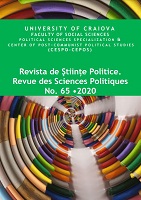The Emergence of the Normative Inflationary Phenomenon in the Post-Communist Period
The Emergence of the Normative Inflationary Phenomenon in the Post-Communist Period
Author(s): Claudia Mădălina BurciSubject(s): Human Rights and Humanitarian Law, Post-War period (1950 - 1989), Transformation Period (1990 - 2010), History of Communism
Published by: Editura Universitaria Craiova
Keywords: normative inflation; legalization of the concept of inflation; protection of human rights; post-communist period;
Summary/Abstract: The normative inflationary phenomenon appeared and developed in the post-communist period, after the number of normative acts adopted increased considerably. This increase has led to inaccessibility and lack of legislative quality of the normative act. All these consequences have produced effects in the sphere of human rights protection, causing the regress of this protection. In order to identify the content, the determining factors and the effects of the normative inflationary phenomenon, we started from the meaning, causes and effects of inflation in the economy, proceeding to a legalization of the normative inflationary phenomenon. The simple analogy will not be sufficient to identify the cause and effect of normative inflation, so it will be necessary to identify effective adaptation methods that will help us to identify the most effective methods to counteract this phenomenon. Using the method of teleological interpretation, one of the adaptation methods that we will identify, will be that of reporting the emergence of the normative inflationary phenomenon to the protection of human rights, considering that the normative act by which this protection is affected is inflationary.
Journal: Revista de Științe Politice. Revue des Sciences Politiques
- Issue Year: 2020
- Issue No: 65
- Page Range: 69-78
- Page Count: 10
- Language: English

